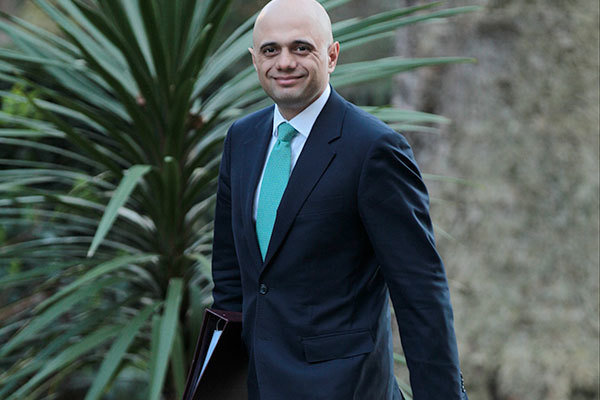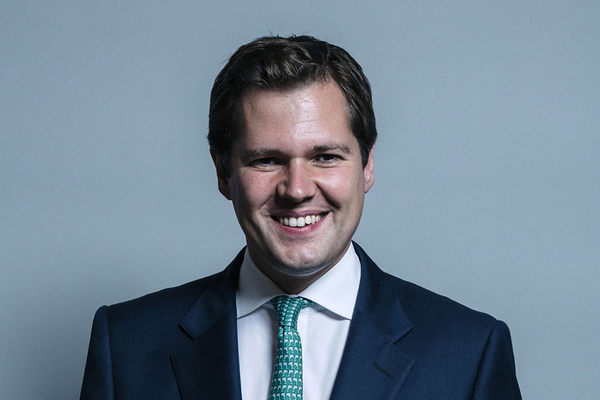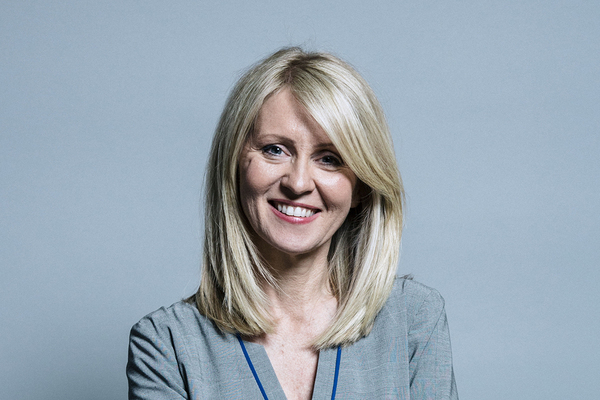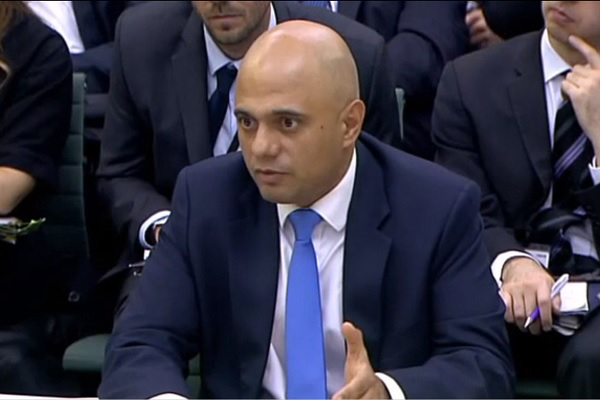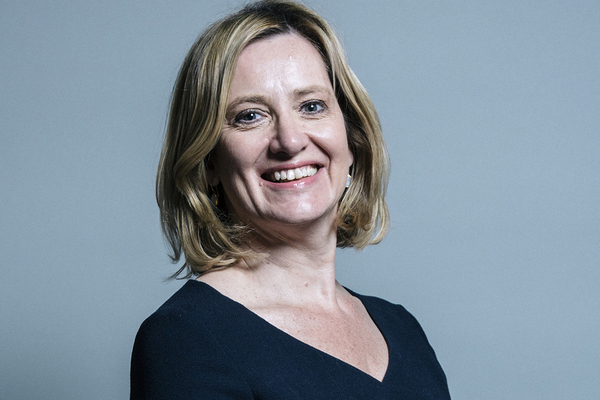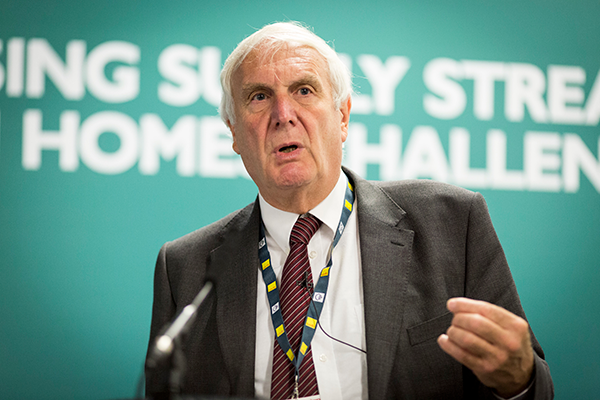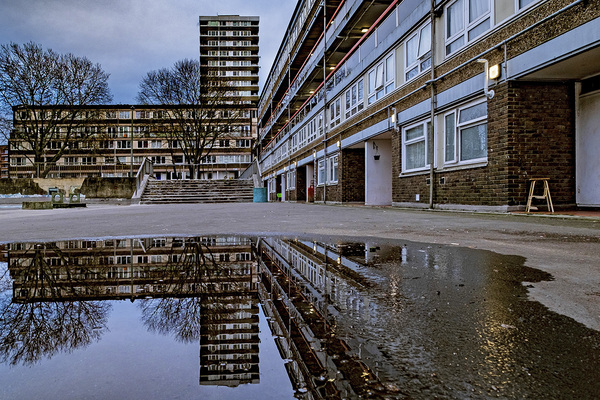You are viewing 1 of your 1 free articles
Who’s who in Boris Johnson’s government?
Who’s who in Boris Johnson’s new government and what could their appointments mean for housing? Inside Housing takes a look. Pictures: Chris McAndrew, Parliament TV, Guzelian and Getty
Last week Boris Johnson was confirmed as the country’s new prime minister.
Making his maiden speech on the steps in front of 10 Downing Street, he promised to “energise the country” and “take it forward”.
He did not waste much time overhauling his cabinet; within hours he began a reshuffle involving an equal number of high-profile casualties and new faces being brought in.
And with the new faces come new ideas and new policies that could have a significant impact on the future of the housing sector.
A week into the new-look government, Inside Housing takes a look at the key figures in government, what their past views on housing and the housing market have been, and what this might mean for future policy.
Robert Jenrick
Role: Housing and communities secretary
Replacing: James Brokenshire
Previous role: Exchequer secretary to the Treasury
Sector history: None
Profile: Our more detailed profile of the new housing secretary is available here, but in brief, he is a rising star of the Conservative Party who, at 37, is the first ever cabinet secretary to be born in the 1980s.
He has previously set out his stall on housing policy in a newspaper column that described a focus on homeownership and warned against becoming a “pale version of our opponents” after Theresa May’s government had announced new funding for social rent. He is pro-supply and did not mind upsetting anti-development lobbyists in his previous role in the Treasury with plans to build an expressway through Oxfordshire.
When it comes to Brexit, he supported Remain during the referendum campaign but has since changed tack: during the indicative votes during the spring, he supported leaving the EU without a deal.
If his early days at the Ministry of Housing, Communities and Local Government (MHCLG) are anything to go by, it looks like increasing homeownership will play a big part of his time in charge the department.
I’ve loved my first days at @mhclg - thank you for the warm welcome!
— Robert Jenrick MP (@RobertJenrick)
We’re going to get Britain building, drive home ownership and make this a more prosperous, united country. pic.twitter.com/RMpZPfAJt1I’ve loved my first days at @mhclg - thank you for the warm welcome!
— Robert Jenrick MP (@RobertJenrick) July 30, 2019
We’re going to get Britain building, drive home ownership and make this a more prosperous, united country. pic.twitter.com/RMpZPfAJt1
Esther McVey
Role: Housing minister
Replacing: Kit Malthouse
Previous role: MP
Sector history: Work and pensions secretary (January 2018 to November 2018), disabilities minister (September 2012 to October 2013)
Profile: A committed Brexiteer and Thatcherite, Esther McVey is Kit Malthouse’s replacement and will be one of the key figures on this list. Unlike her predecessor, she will attend cabinet along with housing secretary Robert Jenrick. The TV-presenter-turned-politician was herself a candidate to become prime minister, running on a ticket of “blue collar Conservatism”, but came last in the first voting round.
Her appointment may be a concern for the social housing sector, as outlined by Inside Housing’s blogger Jules Birch. She has consistently taken an ardently ownership-focused approach to housing, with her leadership bid including a call to divert part of the housing benefit budget to a new Help to Buy programme.
She is well known in the sector, having had two spells at the Department for Work and Pensions – mostly recently as secretary of state until November 2018 when she resigned over Theresa May’s Brexit plan – but that is unlikely to assuage fears.
In 2013, she blamed housing associations for the negative impacts of the bedroom tax on tenants. Last year, she had to apologise to MPs after falsely claiming that the National Audit Office felt Universal Credit was being rolled out too slowly. In March, she told The Times that rises in food bank use by Universal Credit claimants was partly a result of people spending money on iPads and mobile phones.
Within this context, it will be fascinating to see how she approaches the task of delivering the Social Housing Green Paper’s promises to tenants amid other post-Grenfell issues.
Boris Johnson
Role: Prime minister
Replacing: Theresa May
Previous role: MP
Sector history: Mayor of London (May 2008 to May 2016)
Profile: While the former foreign secretary and mayor of London’s reputation may precede him, pinning down Mr Johnson’s opinions on key policy matters can often prove difficult.
We previously outlined what we do know, in an article about what the housing sector can expect from our new prime minister. To summarise, Mr Johnson’s track record shows he is more concerned about the overall number of homes being built, and less so about how many are affordable.
During his time as mayor, Mr Johnson scrapped his predecessor Ken Livingston’s target of 50% affordable homes per development, and was also known to call in and approve planning applications with minimum levels of affordable housing, overriding the rejections of individual boroughs.
Perhaps unsurprisingly for a Conservative politician, Mr Johnson, like his new housing minister and secretary, is also pro-homeownership. At the Conservative Party conference late last year, he praised the Right to Buy and criticised Labour for its focus on state-owned homes, which he branded as being “diametrically opposed to the interests of most families”.
Last week, Inside Housing reported that sources close to Number 10 have said Mr Johnson is considering a new part-rent, part-buy housing tenure that could signal a move away from social rent.
Boris Johnson’s views on housing signal a distinct shift from Ms May, who made moves to build more social homes and provide more funding for these efforts. This was summed up in her departing speech at June’s Housing 2019 conference and exhibition, where she said “social housing had been a victim of the single-minded drive for homeownership”.
If Mr Johnson’s past record and the politicians he has selected to lead on housing policy are anything to go by, this drive could be starting up once again.
Yet one thing we do know about Mr Johnson is that his opinions can change, especially during election times.
Sajid Javid
Role: Chancellor
Replacing: Philip Hammond
Previous role: Home secretary
Sector history: Housing and communities secretary (July 2016 to April 2018)
Profile: Hotly tipped for the role in the lead-up to Mr Johnson’s coronation as prime minister, the former Deutsche Bank director clearly has a head for numbers. He also has a head for housing after spending nearly two years as secretary of state for the MHCLG.
During these two years, he saw the department through a number of high-profile events including the aftermath of the Grenfell Tower tragedy, the publishing of the Housing White Paper and putting the wheels in motion for the Social Housing Green Paper.
This stint did include a number of positive moves for the social housing sector too, including the setting of a post-2020 rent settlement for housing associations and calls for the release of funds to allow councils to build more homes. He was not scared to criticise the private sector either, chastising developers in 2018 for landbanking, and calling for “muscular action” from those that were guilty of it.
He was also the first housing, communities and local government secretary after the department, formerly called the Department of Communities and Local Government, had housing added to its name.
While in charge of the communities brief, Mr Javid voiced his views publicly that more investment was needed from the government to boost housing numbers. In October 2017, he called on then-chancellor Philip Hammond to “borrow £50bn” to invest in hundreds of thousands of new homes just weeks ahead of the Budget.
He has also previously called for a £100bn infrastructure fund and more money to boost police numbers.
The demand for £50bn of borrowing for housing fell on deaf ears in the Treasury at the time, but now with control of the country’s coffers Mr Javid might be willing to part with more public funds to prepare the British economy, and housing sector, for the expected post-Brexit turbulence.
Amber Rudd
Role: Work and pensions secretary
Previous role: Work and pensions secretary
Sector history: None
Profile: One of relatively few cabinet secretaries to stay in the job with the change in prime minister, Amber Rudd is often seen as a Conservative centrist. She campaigned to remain in the EU referendum and put pressure on Ms May to keep no-deal off the table.
However, she appeared to have a change of heart shortly after Mr Johnson was handed the keys to Number 10, telling TalkRadio she “accepted” that a no-deal Brexit was “part of the armoury” as the government prepares to leave the EU by 31 October.
Many will remember Ms Rudd best for her stint as home secretary under Ms May, where she oversaw the hostile environment approach to illegal immigration – including by bringing in the controversial Right to Rent rules – until forced to resign for misleading MPs over deportation targets.
Since becoming work and pensions secretary in November last year Ms Rudd has been tasked with resolving the issues surrounding Universal Credit. Her tone has often been cautiously conciliatory, and she has made changes welcomed by the housing sector such as dropping the two-child benefit cap for 15,000 families. Nevertheless, she was quick to dismiss a UN special rapporteur’s report on poverty in the UK that pointed the finger at welfare reforms.
Those with longer memories may also recall that as energy secretary in 2015, Ms Rudd scrapped government funding for the Green Deal scheme on housing energy efficiency.
Sir Edward Lister
Role: PM’s chief of staff
Replacing: Gavin Barwell
Previous role: Chair of Homes England (currently on a leave of absence)
Sector history: Chair of Homes England (June 2016 to June 2019), deputy mayor of London (policy and planning) (May 2011 to May 2016), leader of Wandsworth Council (1992 to May 2011)
Profile: Sir Edward Lister was seen as a driving force of housing policy during his time as arguably the most senior among Mr Johnson’s deputy mayors at City Hall. Sector figures who dealt with City Hall during this time recall Sir Edward as supply focused and a key force and brain in the drive to increase housebuilding in London.
However, like his boss, he was less concerned about tenure and relaxed about accepting a relatively low percentage of affordable homes to ensure that an overall housebuilding target was met. He was also said to have been focused on homeownership – a policy direction that is already apparent in Mr Johnson’s fledgling government.
As chair of Homes England since 2016, he has helped the organisation become proactive in getting involved in large strategic sites and seen it become more long term in the design of its grant programmes.
Strategic partnerships with housing associations speak to a belief in the sector’s ability to deliver ambitious numbers. His long career in charge of Wandsworth Council, which retains its own housing stock, means he is familiar with the challenges of local government and housing.
He replaces Ms May’s former chief of staff, Gavin Barwell, who was housing minister for a year immediately before entering Number 10. Mr Barwell is credited with having a major influence on housing policy during his time in Ms May’s team, with some describing him as the driving force behind a shift to the left in terms of her housing policy. All eyes will be on Sir Edward to see if he delivers the same.
Liam Booth-Smith
Role: PM’s deputy chief of staff
Previous role: Special advisor to housing secretary James Brokenshire
Sector history: None before previous role
Profile: The former advisor to Mr Brokenshire had a background in thinktanks before entering government, having led Localis before moving to become a director of policy at right-leaning Policy Exchange.
As special advisor to Mr Brokenshire, he developed a good relationship with the National Housing Federation (NHF) – or so Jessica Levy, public affairs manager at the NHF, claimed on a recent podcast. This relationship could be crucial in establishing a lobbying position for the sector with the new PM’s team.
In his time as housing secretary Mr Brokenshire focused heavily on improving design standards – a policy that came from Mr Booth-Smith’s old stablemates at Policy Exchange. It remains to be seen if he will carry this focus into Number 10.
Luke Hall
Role: Parliamentary under secretary of state, MHCLG
Replacing: Heather Wheeler
Previous role: MP
Sector history: None
Profile: Luke Hall’s path to Westminster was not the traditional one for a Conservative MP. After graduating from his local state school in South Gloucestershire, Mr Hall got a job in Lidl where he worked his way up to store manger, before running Farmfoods across the South West.
He became an MP in 2015, representing the constituency of Thornbury and Yate. Following the 2017 general election he was made a parliamentary private secretary in the Department for Education.
Mr Hall is joining MHCLG with no previous experience in the housing sector, meaning his views on housing are hard to determine.
As an MP, he has campaigned against development on the green belt and strongly opposed the West of England Joint Spatial Plan, which sets out housing targets across the region until 2036. In 2017, he raised the issue in parliament and criticised the plan for focusing on housing without considering the impact on communities and infrastructure.
He also cited a lack of affordable housing as a reason for his opposition. Mr Hall originally opposed Brexit during the 2016 referendum but he has said publicly that the country should respect the EU referendum result.
Mr Hall will take over Ms Wheeler’s homelessness brief and, if his Twitter is anything to go by, he has wasted little time getting to grips with the area. With Ms Wheeler leaving the post at a time when a number of key policy decisions are still to be made, such as a ban on ‘no-fault’ evictions, it could be a busy time for the MHCLG newbie.
As the new Minister with responsibility for tackling tackling homelessness, I was pleased to visit @PassageCharity to see how they are using Rough Sleeping Initiative funds to help people find a home, boost their skills and provide support to get off the streets pic.twitter.com/9DzqDd9h4f
— Luke Hall MP (@LukeHall)As the new Minister with responsibility for tackling tackling homelessness, I was pleased to visit @PassageCharity to see how they are using Rough Sleeping Initiative funds to help people find a home, boost their skills and provide support to get off the streets pic.twitter.com/9DzqDd9h4f
— Luke Hall MP (@LukeHall) July 30, 2019
Will Quince
Role: Family support, housing and child maintenance minister
Previous role: Family support, housing and child maintenance minister
Sector history: None
Profile: One of the few Conservative MPs to hold on to their ministerial position, Mr Quince retains his role in the Department for Work and Pensions (DWP). He was handed the job just three months ago, taking over from Justin Tomlinson.
The Colchester MP has previously been a co-chair for the All-Party Parliamentary Group for Ending Homelessness, and in 2017 he called for more support of the country’s homeless people when it comes to the roll-out of Universal Credit. In an article in The Times in 2017, he called for an increase in investment in Help to Rent schemes to assist tenants to overcome financial obstacles and issues with Universal Credit that may trap people in homelessness.
In June, Mr Quince also hit the headlines when he apologised for a memo sent by the DWP to the Work and Pensions Select Committee that dismissed evidence that Universal Credit was a cause of an increasing number of women turning to sex work to pay for rent and essentials.
He campaigned to leave the European Union in the 2016 referendum.
…and those who said goodbye to housing
James Brokenshire
Previous role: Housing and communities secretary
Replaced by: Robert Jenrick
Previous role: Secretary of state for Northern Ireland
After more than a year in the role of housing secretary, Mr Brokenshire (pictured) had the brief taken off him hours before Mr Johnson’s maiden speech.
It was highly speculated before this that Mr Brokenshire may not have held onto the role in the weeks leading up to the Conservative leadership contest conclusion, with Mr Brokenshire even questioning whether he would be in the role at Housing 2019 in June.
Seen as a relatively safe pair of hands in the department, he was in post for the significant scrapping of the borrowing cap, the creation of the Homes England’s strategic partnership programme and the announcement of an extra £2bn for housing associations post-2022.
In reaction to his exit, John Healey, Labour’s shadow housing secretary, described him as an “unfailingly decent and dedicated housing minister”. He now returns to his role as MP for Old Bexley and Sidcup, and is making the most of his extra time at home.
Enjoying spending a little extra time with the ovens... at least for now! #chocolatecake #fourovens t.co/gnTp3UxWky pic.twitter.com/1V5NbiI7hv
— James Brokenshire (@JBrokenshire)Enjoying spending a little extra time with the ovens... at least for now! #chocolatecake #fourovens https://t.co/gnTp3UxWky pic.twitter.com/1V5NbiI7hv
— James Brokenshire (@JBrokenshire) July 28, 2019
Kit Malthouse
Previous role: Housing and communities secretary
Replaced by: Esther McVey
Previous role: n/a
Mr Malthouse, the country’s ninth minister since 2010, handed on the housing baton once again last week. Overseeing the brief for just over a year, he was the longest-serving housing minister since Brandon Lewis, who spent two years in the role between 2014 and 2016.
While the length of time in post meant he had little opportunity to make a real lasting impact on the sector, his Twitter followers and those on the housing conference circuit will remember him for his Kodak analogies and his phrase “more, better, faster”.
He has now moved on to the Home Office as the new police and fire service minister. And within just days of taking on his new role, he has already been at the centre of two major stories on the new country’s new PM.
On Friday, speaking to Sky News, he let slip that Mr Johnson was planning an “emergency budget”. A plan that was later played down by the Treasury. And over the weekend he was left defending one of Mr Johnson’s first pledges to recruit 20,000 new police officers on the streets.
Heather Wheeler
Previous role: Housing and homelessness minister
Replaced by: Luke Hall
Previous role: n/a
Ms Wheeler has been moved into the Foreign Office after more than 18 months as the homelessness minister at MHCLG. During this time, she was was in post to oversee the banning of letting fees and the implementation of the government’s Rough Sleeping Strategy, which aims to halve rough sleeping by 2022.
However, she was forced to apologise in June after leaked emails revealed that she had referred to rough sleepers as “old tinkers, knife cutters”. The leaked emails, published in The Guardian, led to calls from the Big Issue Foundation for her to resign.
Her new role will see her key responsibilities cover Australia, East and South East Asia, and estates and security.

